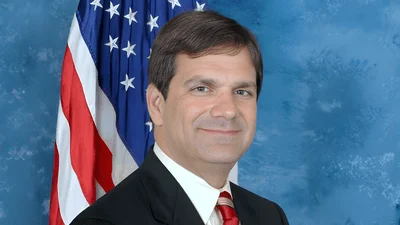Congresswoman Marcy Kaptur (D-OH), Chair of the Energy and Water Development, and Related Agencies Subcommittee, delivered the following remarks at the Subcommittee's hearing on National Nuclear Security Administration and Environmental Management:
Thank you to our witnesses for joining us today as we discuss the work of the National Nuclear Security Administration and the Office of Environmental Management.
The NNSA preserves America’s national security by advancing the nuclear science that assures vigorous nuclear deterrence. Every day, NNSA professionals undertake the serious work of reducing the threat of nuclear proliferation and nuclear terrorism, and sustaining and modernizing the nation’s stockpile of nuclear weapons - the most lethal, capable, and sophisticated arsenal in the world. Additionally, NNSA plays a vital role in powering the U.S. Navy’s aircraft carriers and submarines - the fiercest fleet on the open seas.
Effective management of America’s nuclear deterrent is both a national and global imperative. This is clearer now than ever before by Russia’s unprovoked war against Ukraine. Vladimir Putin’s tyranny and nuclear saber rattling will go down in history as a reckless, desperate, tragic war crime against millions of innocent people. Without a shadow of a doubt, freedom has real enemies in this modern era. America must invest in the safe, reliable nuclear deterrent that serves as Liberty’s shield.
As part of our approach, we must modernize our nuclear deterrent in a manner that is realistic, economical, and risk-informed. As in past years, I am concerned this budget is based on overly optimistic assumptions.
NNSA’s Weapons Activities budget has increased $3.5 billion - 28 percent - since FY 2020. This increase was based in part on the need to modernize production capabilities and begin full-scale manufacturing of plutonium pits. But NNSA continues to run over budget and behind schedule on its nuclear warhead life extension programs. Now NNSA and DOD say they will not meet pit production schedules. In March, the head of U.S. Strategic Command stated that even with unlimited funding, the pit production schedule would not be met. It is apparent, then, that the question is not one of funding, but rather capacity.
America simply cannot afford to get this wrong. I venture to say that every Member of this subcommittee is committed to working with you to achieve a balanced, prioritized NNSA workload that meets America’s national security needs.
Turning to nuclear nonproliferation, the furtherance of worldwide safety and security directly depends on NNSA’s work. Putin’s deranged aggression underscores this point unambiguously. Therefore, I was disappointed to see a flat funding level proposed in the budget. Humanity faces a growing and alarming threat from the development of nuclear weapons. America must double down on arms control - not plateau. As part of our objective, we must also intensify efforts to prevent dangerous material and sensitive technologies from falling into the wrong hands. NNSA should expand its work in all these areas to ensure that America’s nuclear diplomacy is ready for the challenges ahead.
Now, I will turn to the Office of Environmental Management (EM), which holds the significant responsibility of addressing and remedying the legacy effects on the environment that stem from five decades of nuclear weapons production and government-sponsored nuclear energy research. EM cleans up some of the most radioactive sites around the world. This work is both complex and dangerous - but it ensures communities across the country have safe and clean air, water, and soil. In doing this work, it is essential that the skilled personnel who carry it out are protected from contamination and receive the sophisticated training they need.
Given how important these cleanup programs are to the well-being of so many people - including thousands in my home state of Ohio, I was discouraged by the funding reduction proposed in the budget. We have an obligation to deliver progress for the people of these communities and for the future of our nation. We must not accept anything short of full and lasting remediation.
With that, I’ll close my remarks. Thank you to all of you for your service to our nation and for being here today. We look forward to discussing this request.
Source: U.S. Department of HCA








